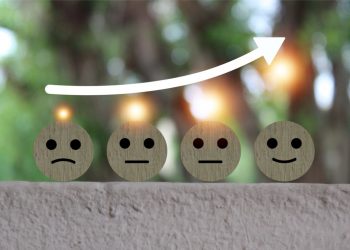 RISMEDIA, March 31, 2009-(MCT)-Americans are sleeping less than ever, according to a new National Sleep Foundation poll, and there is a wide range of reasons as to why Americans are getting too little sleep. Some people are losing sleep because of the economy, some are staying up too late and getting up too early, some have disorders such as sleep apnea, and others can’t sleep because their partner snores. But the danger is the same for everybody, says Mark Opp, a professor at the University of Michigan and the senior writer of a study about sleep.
RISMEDIA, March 31, 2009-(MCT)-Americans are sleeping less than ever, according to a new National Sleep Foundation poll, and there is a wide range of reasons as to why Americans are getting too little sleep. Some people are losing sleep because of the economy, some are staying up too late and getting up too early, some have disorders such as sleep apnea, and others can’t sleep because their partner snores. But the danger is the same for everybody, says Mark Opp, a professor at the University of Michigan and the senior writer of a study about sleep.
“We are chronically sleeping less and we are killing ourselves,” Opp said. “For years, your mom said if you don’t get enough sleep, you are going to get sick. Now, we have pretty compelling evidence that this is indeed the case.”
Did you get a flu shot this year? Did it work? Studies at the University of Chicago and the University of Lubek in Germany show that even short periods of sleep loss play a role in vaccination success. If you miss a night of sleep, it could affect your ability to respond to a vaccination for 30 days.
Opp explained: “You are a shift worker, you’ve been up all night, you are working in the hospital, and its flu season. You stop to get your flu shot on the way home from work, but you might be immune-suppressed because of the lack of sleep, and the vaccine might not be as effective.”
Most of us fall short
Just 28% of Americans get eight hours of sleep on a regular basis – down from 38% in 2001, according to the National Sleep Foundation report. And 2 in 10 sleep less than six hours a night.
The U.S. National Institutes of Health estimates that some 70 million Americans suffer from a chronic sleep disorder or intermittent sleep problem.
“We are staying up later,” Opp said. “We are working longer hours. We have to commute longer to work. We sleep less than what the biologic need is. It’s becoming more and more apparent, as a part of very large studies, that short sleep has negative health consequences.”
How much sleep should you get every night? “There is pretty compelling evidence that the biologic need is more than 8 hours,” Opp said.
Sleep loss is associated with increased obesity and diabetes. The risk of a fatal heart attack increases 45% in those who chronically sleep five hours per night or less.
According to the National Sleep Foundation poll:
– More than one-half of adults (54%) have driven when drowsy at least once in the past year. Nearly one-third of drivers (28%) say that they have nodded off or fallen asleep while driving a vehicle.
– 27% had disturbed sleep in the past month because they’re worried about money.
Tips for healthy sleep:
1. Keep a regular bedtime and wake-up schedule, and stick to the schedule on the weekend.
2. Establish a regular, relaxing bedtime routine, such as soaking in a hot bath or hot tub and then reading a book or listening to soothing music.
3. Create a sleep-conducive environment that is dark, quiet, comfortable and cool.
4. Sleep on a comfortable mattress and pillows.
5. Finish eating at least 2-3 hours before your regular bedtime.
6. Exercise regularly. Late afternoon exercise is the perfect way to help you fall asleep at night.
7. Avoid caffeine, nicotine and alcohol close to bedtime.
© 2009, Detroit Free Press.
Distributed by McClatchy-Tribune Information Services.










